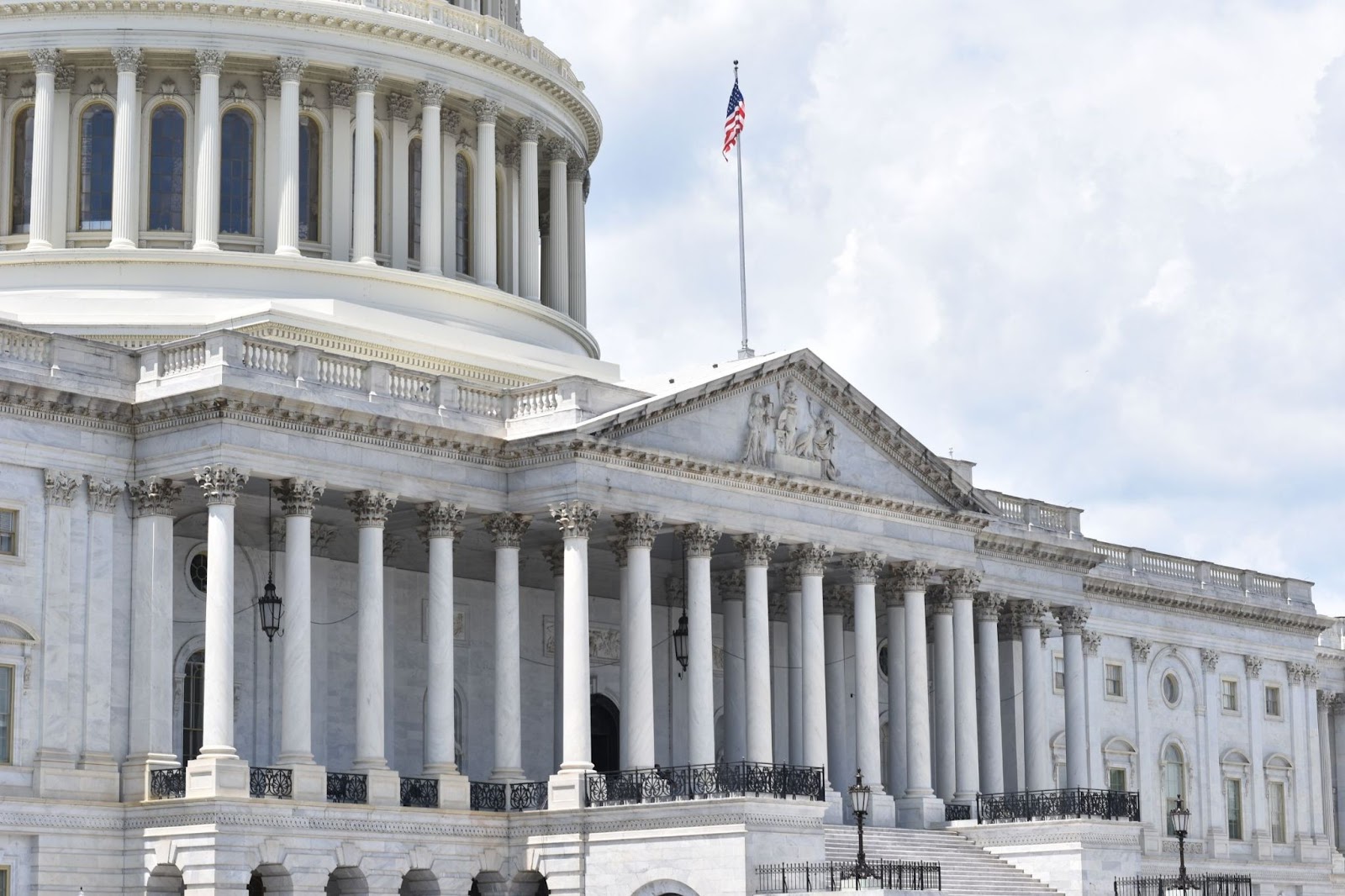For businesses in Maryland, it’s essential to know whether clothing is subject to sales tax in order to manage sales tax obligations correctly. The taxability of clothing can vary based on specific items, and certain exemptions may apply.
This blog will answer the big question “Is Clothing Taxable in Maryland?”. We outline the rules governing clothing sales tax in Maryland, highlighting any exceptions that businesses should be aware of.
The blog will also provide clear guidance on how these regulations affect business operations and financial planning.
By the end of this article, we’ll show you ways to ensure compliance while avoiding any potential tax issues.
Is Clothing Taxable in Maryland?
Most clothing including shirts, pants, footwear is taxable in Maryland under the 6% state sales tax.
However, there are exceptions to the general rule. For instance, certain types of clothing, such as protective gear, uniforms, and sportswear, are taxable. Accessories like jewelry, handbags, and belts also fall under taxable categories.
Clothing rentals, including items like uniforms and linens, are subject to sales tax as well. Maryland applies a uniform state sales tax rate on clothing, without any additional local taxes on these items.
Maryland Sales Tax Rate on Clothing
Purchasing clothes in Maryland is generally subject to a 6% state sales tax. This applies to most items such as shirts, pants, dresses, and shoes. Unlike some states, Maryland does not impose additional local taxes on clothing, so the tax rate remains the same throughout the state.
However, certain exceptions exist. Clothing purchased for resale or for use in manufacturing may be exempt from tax. Nonprofit organizations can also benefit from exemptions on clothing purchases, provided they submit the required documentation.
For businesses, ensuring accurate tax collection is crucial to avoid penalties. It’s also important to regularly review tax updates and changes to keep up with any potential shifts in exemption rules or tax rates.
Proper record-keeping and working with a tax professional can help maintain compliance and streamline the process.
What are Maryland’s Exemptions and Special Cases for Clothing?
Maryland offers several exemptions and special cases for clothing purchases that businesses should be aware of. While most clothing is taxable, certain exceptions apply:
- Protective and Safety Clothing: Items like work uniforms and safety gear are generally taxable in Maryland.
- Clothing for Resale: Clothing purchased with the intent to resell is exempt from sales tax, provided a valid resale certificate is presented.
- Nonprofit Organizations: Eligible nonprofits can claim exemptions on clothing purchases if they provide the required documentation.
- Government Purchases: Clothing bought directly by government agencies is exempt from sales tax.
- Tax Holidays: Maryland holds an annual 7-day sales tax holiday (second Sunday in August) for clothing/footwear under $100 per item.
Tax on Clothing in Maryland: Local vs. State
Maryland tax on clothes is set at a uniform rate of 6%. Unlike some states, there are no additional local sales taxes applied to clothing, which makes the tax calculation straightforward for businesses.
Maryland’s sales tax is applied at the point of sale, rather than a value-added tax (VAT) that accumulates through various stages of production. Businesses should keep detailed records of exempt transactions, such as those involving resale clothing or items purchased by nonprofit organizations, to ensure they remain compliant.
As tax laws may change over time, businesses should stay informed about any updates to Maryland’s tax regulations to avoid unexpected liabilities and maintain proper sales tax compliance with the clothing sales tax Maryland requirements.
Sales Tax Registration Requirements for Clothing Sellers in Maryland
For businesses unsure about is clothing taxable in Maryland?, compliance doesn’t stop at knowing the rates. Filing your returns correctly and on time is key.
Both brick-and-mortar stores and online businesses are required to complete this process to legally collect and remit sales tax. Here are the key steps:
Registration for Physical Stores:
- Register with the Maryland Comptroller’s Office via their online portal.
- Obtain a Sales Tax Permit, which must be displayed at the business location.
- File sales tax returns through the Comptroller’s online system based on sales volume.
Registration for Online Sellers:
- Complete the same registration process as physical stores.
- Obtain a Sales Tax Permit for online businesses.
- Submit sales tax returns electronically through the Comptroller’s portal.
Key Considerations:
- Economic Nexus: Sellers making over $100,000 in sales to Maryland residents must collect sales tax, even without a physical presence.
- Nonprofit Exemptions: Eligible nonprofits can apply for a sales tax exemption certificate with the proper documentation.
Sales Tax Filing Requirements for Clothing Businesses
Clothing businesses in Maryland must adhere to specific sales tax filing requirements to ensure compliance with state regulations. Here’s an overview:
Filing Frequency:
- Monthly Filers: Businesses with tax liabilities over $1000 per month must file returns monthly, due by the 20th of the following month.
- Quarterly Filers: Businesses with tax liabilities between $25 and $999 per month must file quarterly, with returns due on the last day of the following month after the quarter ends.
- Annual Filers: Businesses with tax liabilities under $25 must file annually, due by January 20th of the following year.
Filing Method:
All returns must be submitted electronically through the Maryland Comptroller’s online portal. This sales tax platform enables efficient and secure filing, along with tracking payment history and past submissions.
The system also allows businesses to set up reminders for filing deadlines, helping to avoid late submissions. Additionally, businesses can access helpful resources and guides on the portal to ensure accurate filings.
Penalties for Late Filing:
Failure to file returns on time in Maryland can result in penalties, even if no tax is due. These penalties include:
- Late Filing Penalty: A 5% penalty on the unpaid sales tax for each month the payment is delayed, with a maximum of 25%.
- Interest: Interest will accrue on overdue taxes at an annual rate of 13%, increasing the total amount due.
- Audits: Repeated late filings may trigger an audit by the Comptroller’s Office, potentially leading to further complications for the business.
Implications for Remote Sellers and E-commerce Clothing Sales
E-commerce clothing sellers, including remote sellers, must comply with economic nexus laws regarding Maryland sales tax clothing. Failure to stick to these regulations could result in an audit by the Maryland Comptroller’s Office.
Here are the registration requirements for e-commerce clothing sellers:
- Register for Sales Tax: Use the Maryland Comptroller’s online portal to register and obtain a sales tax permit. This permit allows businesses to collect and remit Maryland sales tax on clothing items legally.
- Collect Sales Tax: Apply the appropriate 6% Maryland state clothing sales tax rate on taxable sales made to customers.
- File Sales Tax Returns: File returns and remit taxes electronically through the Comptroller’s system. Timely filing is essential to avoid penalties or interest for late payments or failure to file.
Sales Tax Compliance Challenges for Clothing Businesses in Maryland
Businesses selling clothes in Maryland face several challenges when it comes to sales tax compliance, including:
- Tracking Tax Holidays: Maryland offers a tax-free week in August, during which certain clothing items priced under $100 are exempt from sales tax. Staying updated on these dates is crucial for businesses to apply the correct tax rates.
- Managing Sales Tax Rate: Maryland has a statewide 6% sales tax rate for clothing, and no local taxes are added, simplifying tax collection compared to other states.
- Remote Sales Tax Compliance: Maryland’s economic nexus law requires remote sellers with over $100,000 in annual sales to Maryland customers to collect and remit sales tax, even without a physical presence in the state.
- Understanding Exemptions: Certain items, like clothing purchased for resale, are exempt, and businesses must correctly classify these items to avoid tax errors.
How Automation Helps Manage Maryland Sales Tax?
Treading through Maryland’s clothing sales tax can be complex due to the state’s tax rate, exemptions, and remote sales requirements. Commenda makes this process easier by automating key aspects of sales tax compliance.
We automatically calculate the correct sales tax for each transaction, ensuring accuracy with a 6% sales tax clothing Maryland rate. Our platform tracks your sales to identify when the economic nexus is established, prompting timely registration and tax collection.
It also handles tax filings and remittance, reducing the risk of penalties and generating audit-ready reports for compliance.
With seamless integration with over 40 business tools, Commenda streamlines your workflow, saving time and minimizing errors. It’s the ideal solution for managing Maryland clothing sales tax compliance.
Ready to optimize your sales tax process? Book a demo with us today!
FAQs
Q. Are clothing accessories taxable in Maryland?
Yes, in Maryland, accessories like jewelry, handbags, and belts are taxable, as they are considered separate from everyday clothing and fall under taxable goods.
Q. Is there a threshold for taxable clothing sales in Maryland?
Maryland does not have a specific threshold for clothing sales. Most clothing items are taxable unless they meet exemptions, such as clothing purchased for resale.
Q. How do Maryland sales tax rules apply to children’s clothing?
Children’s clothing is generally exempt from sales tax in Maryland, with some exceptions for items like sports uniforms or specialized gear.
Q. Are there specific rules for clothing sold at a discount in Maryland?
Discounted clothing is still taxable in Maryland if it is normally taxable, regardless of the discount applied.
Q. Does Maryland exempt clothing purchased for resale from sales tax?
Yes, clothing purchased for resale is exempt from sales tax in Maryland when accompanied by a valid resale certificate.
Q. How do Maryland sales tax exemptions apply to used clothing?
Used clothing is taxable in Maryland unless purchased for resale or by qualified nonprofit organizations.
Q. Are clothing alterations taxable in Maryland?
Yes, clothing alterations are taxable in Maryland, as they are considered a taxable service.
Q. Do Maryland sales tax rules apply to out-of-state sellers selling clothing online to Maryland residents?
Yes, out-of-state sellers must collect Maryland sales tax if they meet the economic nexus threshold of $100,000 in sales or 200 transactions with Maryland residents.











